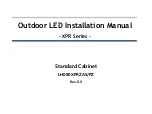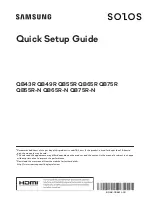
4-31
Line Queuing with Callback
If the called outside line is busy, the station user can press the CALLBACK key or dial the
access code to place the station in a callback queue. The user will be called back when the
line is available (a maximum of 100 callbacks are allowed system-wide at any one time, in-
cluding busy station and busy trunk).
Line Skipping
When the user is talking on an outside line and the automatic hold feature is turned off,
pressing an idle line key can skip to that line without causing the previous call to go on hold.
Loud Ringing Interface
A customer-provided loud ringing device can be controlled using a dry contact pair on the
KSU. The device can be programmed to operate with a specific station or station group.
Manual Signalling
Keysets can signal each other via a programmable key. This allows one station to alert an-
other without establishing a voice conversation. Each press of the key results in 500 millisec-
onds of ring tone being set to the intended station. An individual manual signalling key must
be programmed for each station to be signalled.
Message Waiting Light/Indication
When a message indication is left at a keyset, the MESSAGE key will slowly flash red. If fit-
ted, the keyset status indicator will also flash. Single line telephones will receive a distinctive
dial tone to notify them that a message is waiting. Message waiting indications can be left for
any station or group of stations.
Mute Microphone/Handset
Any keyset user can mute the keyset’s handset transmitter by pressing the MUTE key. In
addition, keyset users can also mute the keyset microphone while the keyset is in speaker-
phone mode.
Off-Hook Ringing
When a keyset is in use, the system will provide an off-hook ring signal to indicate that an-
other call is waiting. The ring signal is a single ring repeated. The interval is controlled by a
system-wide timer. Single line telephones will receive a tone burst through the handset re-
ceiver instead of a ring.
Off-Hook Voice Announce
Keysets may receive a voice announcement while on another call. The calling station must
have an OHVA key. When transferring a call to a busy keyset, or while listening to busy sig-
nal, the station user can press the OHVA key to make an OHVA call to the busy keyset. If the
called keyset is in the DND mode, it cannot receive OHVA calls.
















































